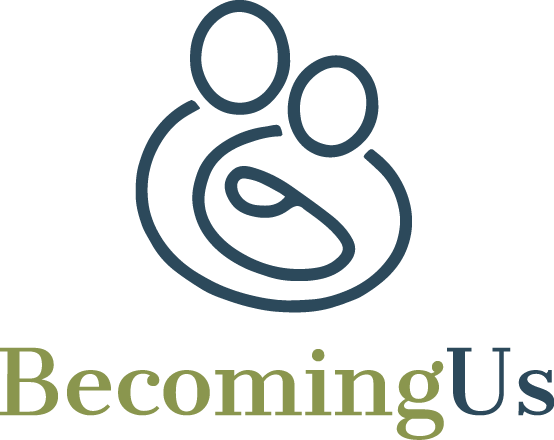Valentine’s Day is supposed to be the romantic day of the year, or so we’re led to believe by card manufacturers, chocolatiers, jewellery shops, florists, restaurants and travel brokers! But why is it, and what does it actually mean to you, your partner and for your relationship?
Let’s look at why and when it began.
The Valentine’s Day we now know actually originated as the ancient annual festival of Lupercalia, held in mid-February in the city of Rome between the 13th- 15th of February. It was a way to chase away evil spirits, purify the city to improve health and celebrate the coming of Spring. Traditionally this included fertility rites and, get this, the pairing of women and men via a lottery. The men would select a piece of paper containing the name of the woman they were to be paired with. Towards the end of the 5th century, Pope Gelasius I replaced Lupercalia with St. Valentine’s Day, and though there are various versions of who ‘Valentine’ was, by the 14th century Valentine’s day became celebrated as a day of romance.
As each Valentine’s Day passed more and more traditions and ideas were added to what makes the perfect day of romance. For example, roses, the flower of Aphrodite, the god of love, became a popular symbol, and by the 19th century the giving of cards and gifts became common-place.
Today, Valentine’s Day has become almost as commercialised as Christmas, with businesses clamouring to offer the perfect gift for a loved one.
So, all that aside, is Valentine’s Day good or bad for your relationship?
Well, it depends…on the relationship, but here’s a few things to think about:
The Good:
1. Making someone you love feel special (even it’s on a pre-determined day) isn’t a bad thing. If you’re both in a great place right now, you’re more likely to be tuned in to what the other appreciates. This can be a great opportunity to really reveal your feelings for your partner and talk together about what’s most important for you.
2. You may not be a natural romantic, but there’s plenty of ideas floating around at this time of year that might make your partner feel loved and important. Now is a great time to store up those ideas to use later! You don’t have to be romantic just one day a year.
3. Having a date to look forward to something special can ignite excitement and passion and take you back to your earlier dating days. Don’t underestimate the power of planning. It’s more than just a date - getting ready for a romantic day/evening is a process and the anticipation can be almost as tantalising and enjoyable as the actual date.
4. If you’ve been going through a shaky period lately you might like to know that many couples use Valentine’s Day as a way to reboot their relationship and use the date as a springboard for positive change. If you’re in this place, manage your expectations so you don’t inadvertently add to disappointment. Maybe just relax and rediscover each other.
5. The positive memories you can create from one day or evening can last a lifetime.
The Bad:
1. Valentine’s Day can come with some lofty expectations, and with them, added stress If you’re both pressuring yourselves (or each other) to have the ‘perfect romantic day’, you could be setting yourselves up for a fall. Sure, do your bit to aim for the stars, if that’s what you both really want, but if you ‘only’ reach the moon, be prepared to appreciate each other’s efforts instead of feeling disappointed that you’ve fallen short.
2. Social Media brings comparisons and potentially feelings of envy of failure. Don’t fall into the trap of focusing on what everyone else is getting or doing, although it’s hard to ignore. Maybe have a social media ban for a couple of days so you can focus on your relationship and celebrate the uniqueness of you two instead.
3. Things get magnified. If your relationship is a little rocky, Valentine’s Day can stir up resentment and even dread. One of you may be hoping to use Valentine’s Day as a way to increase intimacy and desire with your partner, while the other partner may be freaking out at the thought. It’s normal for couples to go through periods like this (especially when you add little kids into the mix!). It’s also not uncommon for some partners to manufacture arguments simply to avoid physical or emotional interaction with their partner.
4. It’s just one day. Making an effort to shower your partner with attention and affection for just one day is a double-edged sword. Yes, you’re showing them how much you love them, but it’s in the ordinary, everyday, that small tokens of love and appreciation stabilise and build relationships.
5. Not everyone likes surprises! A sudden burst of romantic enthusiasm may feel false and lead to suspicion or feelings of guilt. If you decide to surprise your partner, make sure you know them well enough that their reaction is not the biggest surprise of the day!
All of this doesn’t mean you shouldn’t celebrate Valentine’s Day, but there might be benefits in taking it less seriously. Maybe see it as just a small part of what you can do to keep your relationship in good health. What’s important in a long and loving relationship, isn’t an annual celebration, but regular attention and sharing with your partner, whatever that looks like for you. After all, gratitude, affection, intimacy and sometimes hard work day in and day out is what makes a relationship last…and what could be more romantic than that?
For more check out Becoming Us, The Couple’s Guide to Parenthood.




